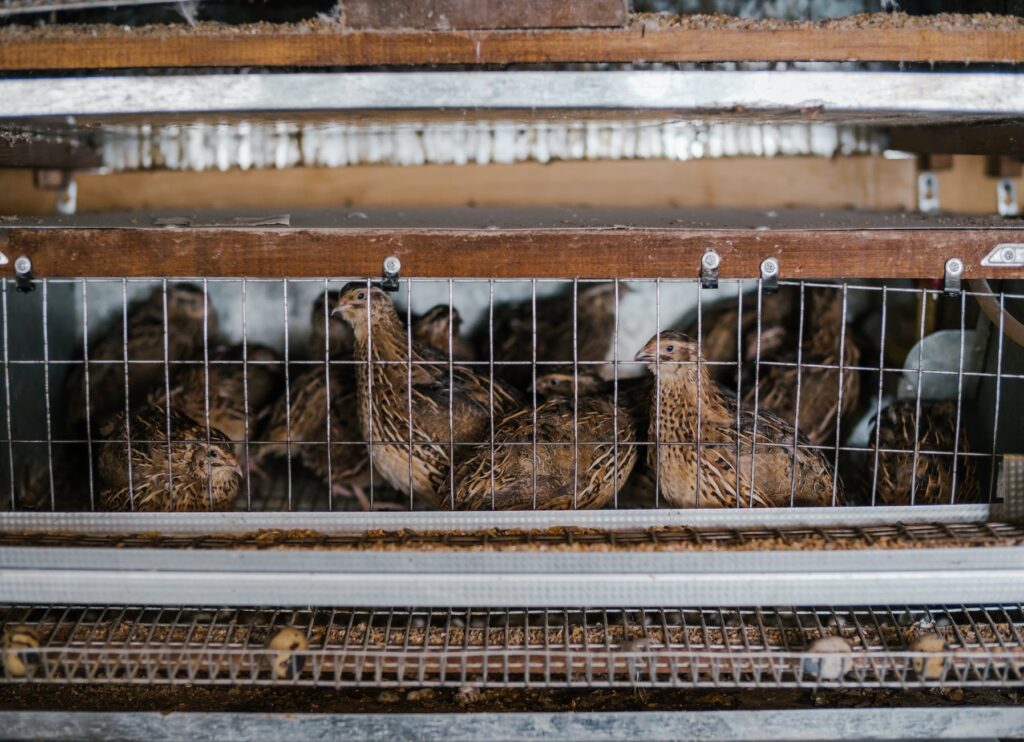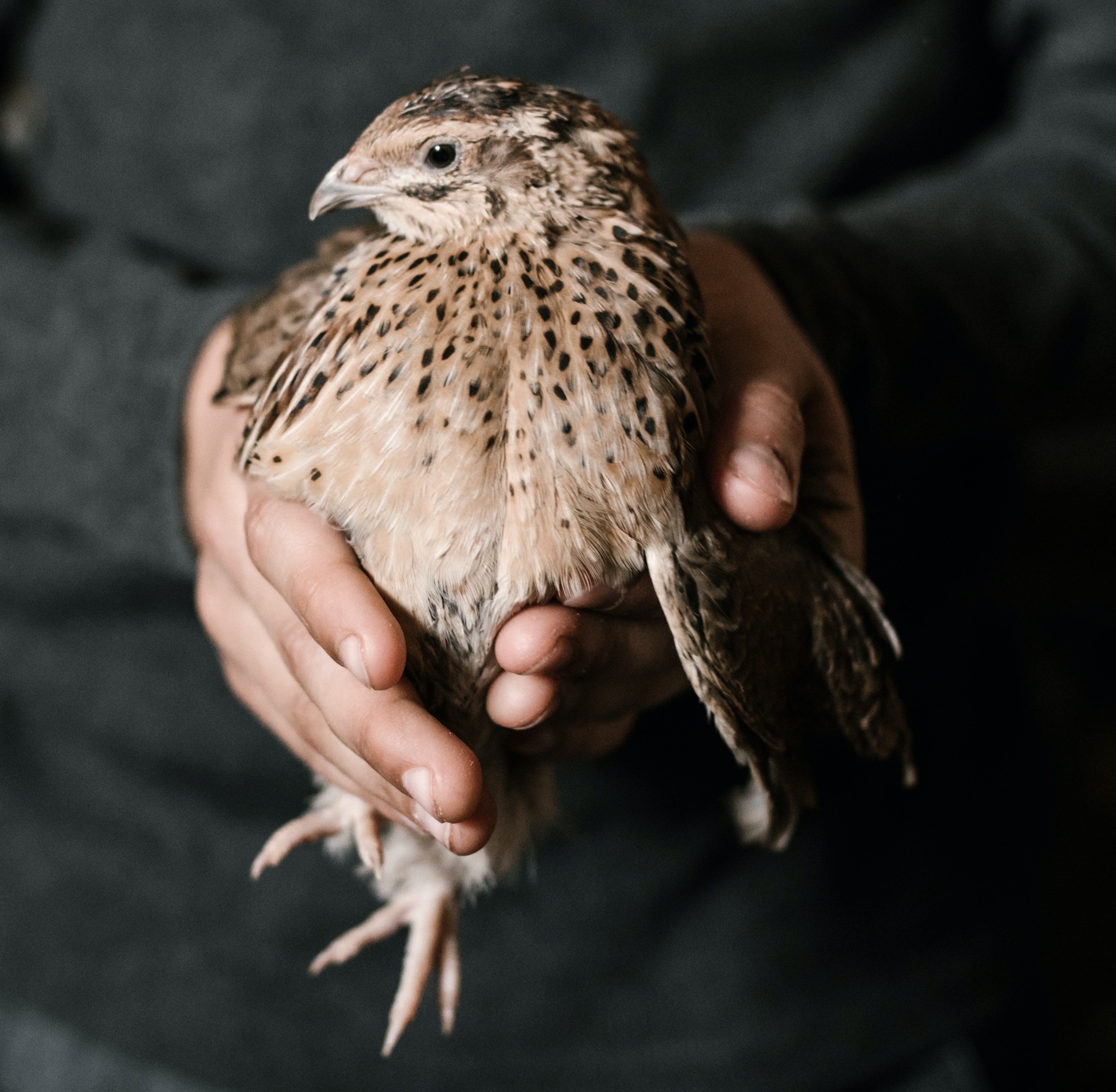If you’ve ever found yourself immersed in the wonderful world of quail keeping, you know that providing the right diet is key to happy and healthy birds. In this blog post, let’s dive into the world of quail diet / nutrition and explore a comprehensive guide to keeping your quail well-fed and thriving.
Understanding Quail Dietary Needs:
Quail, especially the popular Coturnix variety, are known for their voracious appetites. To keep these little guys in top-notch condition, it’s essential to understand their dietary needs.
1. Protein Powerhouse: Quail are protein enthusiasts. Whether you’re raising them for meat or eggs, a protein-packed diet is non-negotiable. Commercial quail feeds typically contain around 20-25% protein, providing the necessary amino acids for muscle development and egg production. If you’re opting for a homemade feed mix, incorporate protein-rich sources like soybean meal or fish meal.
2. Balanced Nutrition: While protein is the star of the show, quail also need a well-rounded diet. Carbohydrates, fats, vitamins, and minerals all play vital roles in their overall health. Whole grains like wheat, barley, or oats can provide essential carbohydrates, while a touch of healthy fats from sunflower seeds or flaxseed keeps them energized.
Vitamins and minerals are crucial for bone development, immune function, and overall well-being. A commercial poultry vitamin and mineral supplement or a well-thought-out homemade mix can ensure your quail get the nutritional boost they need.
3. Calcium for Strong Shells: If you’re raising quail for eggs, calcium is a game-changer. Quail eggshells need to be strong, and a calcium deficiency can lead to brittle shells and health issues. Crushed eggshells, ground limestone, or oyster shell supplements can be provided to ensure your layers get the calcium punch required.
Commercial Feed vs. Homemade Mix:
The eternal debate in the quail-keeping community: to go commercial or to craft your own feed mix? Both options have their pros and cons, and the choice ultimately depends on your preferences, resources, and the number of quail you’re raising.
1. Commercial Feed: Convenience is the name of the game with commercial quail feeds. They are formulated to meet the specific nutritional needs of quail, taking the guesswork out of creating a balanced diet. However, some enthusiasts argue that commercial feeds might contain additives or preservatives that they’d rather avoid.
2. Homemade Feed: Crafting your own quail feed provides you with the flexibility to choose each ingredient. You have control over the protein content, the quality of grains, and the types of supplements you include. This option is often seen as more cost-effective, but it requires a bit more effort and knowledge about quail nutrition.
Quail Treats: A Culinary Delight for Feathered Friends:
Who doesn’t love a treat now and then? Quail are no exception. Incorporating treats into their diet can be a delightful experience for both you and your feathered friends.
1. Fresh Fruits and Vegetables: Quail love a good fruit and veggie party. Leafy greens, carrots, berries – the options are endless. Not only do these treats add variety to their diet, but they also provide essential vitamins and minerals. Mine love a treat of cold watermelon in the hot summer.
2. Mealworm Mania: Mealworms are like candy for quail. These protein-packed delights are excellent for an occasional treat and can be a great source of entertainment for your quail as they peck away at the squirming morsels.
3. Boiled Eggs: Yes, you read that right. Quail can enjoy their own kind from time to time. Boiled eggs are an excellent source of protein and can be offered as a treat to boost their protein intake, especially during molting or egg-laying seasons. Great way to use up excess eggs during the peak laying period.

Keeping an Eye on Quail Health:
While providing a well-rounded diet is crucial, observing your quail for signs of health issues is equally important.
1. Uneaten Food: If your quail consistently leave their food untouched, it could be a sign that something is amiss. Check for signs of illness and consider adjusting their diet if necessary.
2. Lethargy and Weight Loss: Lethargic behavior and sudden weight loss are red flags. These symptoms might indicate health issues or improper nutrition. Adjust their diet and, if needed, consult a veterinarian specializing in poultry health.
3. Feathers and Appearance: Healthy quail boast vibrant feathers and a lively appearance. If your quail’s feathers appear dull, or if they exhibit ruffled plumage, it’s time to investigate further.
In conclusion, creating a feeding plan for your quail is both an art and a science. Whether you choose a commercial feed or opt for a DIY mix, the key is to provide a balanced diet that meets their nutritional needs. Treats and occasional culinary indulgences add an extra layer of enjoyment to their feathered lives. So, get ready for the quail feeding frenzy, and watch your backyard transform into a haven of clucks, joy, and healthy quail antics! Happy feeding!
